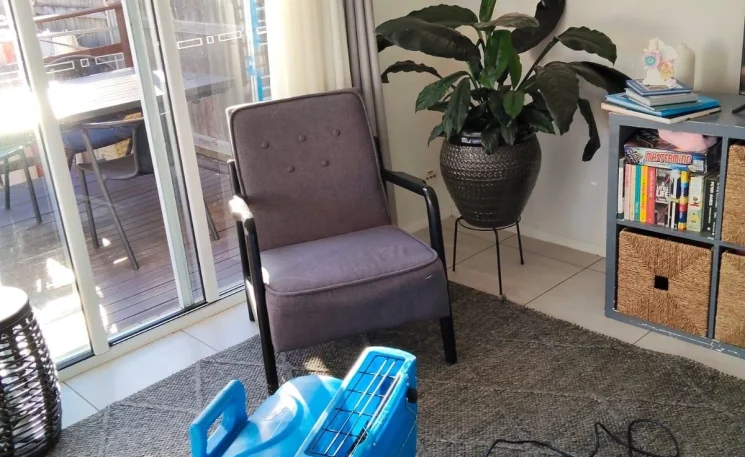Can a Wet Wall Dry on Its Own Without Professional Help?
Dealing with a wet wall in your home can be stressful. Many homeowners wonder if they can simply let the wall dry on its own or if professional help is essential. In this article, we will explore the dynamics of wet wall drying, the risks of ignoring water damage, and when it’s best to call experts like Structural Drying Australia.
How Does a Wet Wall Dry Naturally?
When a wall gets wet due to leaks, flooding, or condensation, water penetrates the materials, including plaster, drywall, and insulation. In theory, moisture can evaporate over time if the environment is dry, warm, and well-ventilated. Natural drying involves airflow and temperature control.
Open windows, use fans, and maintain low humidity to encourage evaporation. However, this method is slow and often incomplete. Water trapped deep inside the wall or behind panels can remain for weeks, fostering mold growth and structural damage.
Why Wet Wall Drying Is More Complicated Than It Seems
Drying a wall might look simple, but water can seep into cavities, insulation, and structural timber. These hidden areas often hold moisture that natural airflow cannot reach. Improper drying can lead to:
-
Mold and mildew growth: Moisture in walls creates the perfect environment for mold, which spreads quickly and can affect indoor air quality.
-
Structural damage: Persistent dampness weakens drywall, plaster, and timber framing.
-
Odor issues: Stagnant water can cause musty smells that linger even after the surface looks dry.
For homeowners, relying solely on natural drying is risky, especially if the wet wall resulted from a serious leak or flood.
Can Ceiling Drying Be Done Without Experts?
Ceiling drying shares many challenges with wall drying. Water from leaks or burst pipes often spreads across ceiling cavities, making it hard to access. Ceiling drying requires careful attention because trapped moisture can damage ceiling panels, plaster, and insulation.
Even if the surface appears dry, water may remain inside the ceiling structure. Professionals use specialized moisture meters and infrared cameras to locate hidden water pockets, ensuring the ceiling dries completely. Attempting ceiling drying without tools may leave moisture behind, leading to sagging ceilings and further repair costs.
Signs Your Wet Wall Needs Professional Intervention
Not all wet walls require professional assistance. Minor splashes or condensation can sometimes dry naturally. However, you should seek professional help if you notice:
-
Persistent damp patches after a few days
-
Bubbling or peeling paint
-
A musty odor in your home
-
Visible mold growth
-
Soft or sagging plaster or drywall
These indicators show that wet wall drying is incomplete or ineffective. At this stage, professional services like Structural Drying Australia can prevent further damage and ensure safe, thorough drying.
How Professionals Handle Wet Wall Drying
Professional drying services use advanced techniques and equipment to manage moisture efficiently. Common methods include:
-
Air Movers and Dehumidifiers – These accelerate evaporation while controlling humidity to prevent secondary damage.
-
Infrared Moisture Detection – This identifies hidden pockets of water behind walls, ceilings, and floors.
-
Controlled Heat Drying – Gentle heat speeds up drying without damaging materials.
-
Structural Drying Techniques – Professionals ensure that water trapped in cavities and timber is removed entirely, reducing the risk of mold and rot.
By addressing the problem thoroughly, professionals save homeowners time, money, and stress while protecting the property’s structural integrity.
Risks of Ignoring Wet Wall Drying
Assuming that a wet wall will dry naturally can be costly. Ignoring proper drying can result in:
-
Long-term structural damage: Prolonged exposure to moisture weakens walls, ceilings, and framing.
-
Expensive repairs: Mold remediation, repainting, and plaster replacement can cost thousands.
-
Health hazards: Mold spores can trigger allergies, respiratory issues, and other health problems.
Quick, professional intervention ensures that the wet wall dries properly and prevents future damage.
DIY Tips for Minor Wet Wall Drying
If the water damage is minor, homeowners can attempt a few strategies to aid drying:
-
Increase airflow with fans and open windows
-
Use portable dehumidifiers to reduce indoor moisture
-
Remove wet furniture or coverings near the wall
-
Avoid painting or covering damp areas until fully dry
While these measures help, they cannot replace the precision of professional ceiling drying or wall drying methods when moisture has penetrated deeply.
When to Call Structural Drying Australia
For serious water damage, it’s wise to engage experts. Structural Drying Australia specializes in fast, effective solutions for wet walls and ceilings. Their team uses professional equipment to:
-
Detect hidden moisture
-
Accelerate drying safely
-
Prevent mold and structural damage
Calling professionals early minimizes repair costs and ensures a healthier home environment.
Conclusion: Can a Wet Wall Dry on Its Own?
While small, superficial damp spots might dry naturally, relying on this method for significant water exposure is risky. Wet wall drying requires proper airflow, humidity control, and sometimes specialized equipment to ensure complete moisture removal. Similarly, ceiling drying without professional tools often leaves hidden water pockets that cause damage later.
For optimal results, and to protect your home’s structural integrity, it’s best to consult experts like Structural Drying Australia. Their professional approach ensures thorough drying, prevents mold, and safeguards your property against long-term issues.
- Share

YOU MIGHT ALSO ENJOY
Elevate Your Workout Wardrobe with Compression Gym Tops Women and Women Oversized Gym T Shirt
Stephen Romero - March 3, 2026
The Beauty of a Ceramic night light and Lithophane night light in Modern Home Décor
Stephen Romero - March 3, 2026
Transforming Spaces with Greenhouse Conservatory Design and Botanical Glass Houses
Stephen Romero - March 3, 2026
search
FAST ACCESS
- art&gallery (4)
- Automotive (25)
- beauty (7)
- blog (535)
- Business (893)
- cleening (13)
- clinic (1)
- courier services (4)
- dentel care (6)
- Driving school (3)
- electronics (1)
- events (1)
- food (1)
- forests (11)
- gameing (5)
- Health (30)
- Health & Fitness (218)
- Home & Garden (16)
- Landscaping (1)
- Law (16)
- Lifestyle (15)
- machinery (5)
- Real Estate (9)
- Share Market (15)
- Shopping (7)
- Technology (31)
- tool (2)
- toys (2)
- Travel (43)
- Wedding & Events (344)
must read
Elevate Your Workout Wardrobe with Compression Gym Tops Women and Women Oversized Gym T Shirt
Stephen Romero - March 3, 2026
The Beauty of a Ceramic night light and Lithophane night light in Modern Home Décor
Stephen Romero - March 3, 2026
Reliable Commercial Cleaning Services in Calgary: Elevating Workplace Standards
Stephen Romero - March 3, 2026
Transforming Spaces with Greenhouse Conservatory Design and Botanical Glass Houses
Stephen Romero - March 3, 2026
recent post
ARCHIVES
- March 2026 (21)
- February 2026 (179)
- January 2026 (210)
- December 2025 (151)
- November 2025 (132)
- October 2025 (105)
- September 2025 (166)
- August 2025 (164)
- July 2025 (150)
- June 2025 (173)
- May 2025 (99)
- April 2025 (1)
- March 2025 (8)
- February 2025 (9)
- January 2025 (8)
- December 2024 (25)
- November 2024 (40)
- October 2024 (11)
- September 2024 (1)
- July 2024 (10)
- June 2024 (11)
- May 2024 (31)
- April 2024 (15)
- March 2024 (19)
- February 2024 (6)
- January 2024 (7)
- December 2023 (11)
- November 2023 (1)
- July 2023 (13)
- June 2023 (21)
- May 2023 (27)
- April 2023 (23)
- March 2023 (16)
- February 2023 (31)
- January 2023 (27)
- December 2022 (11)
- November 2022 (12)
- October 2022 (11)
- September 2022 (11)
- August 2022 (14)
- July 2022 (13)
- June 2022 (19)
- May 2022 (17)
- April 2022 (10)
- March 2022 (12)
- February 2022 (8)
- January 2022 (9)
- December 2021 (19)
- November 2021 (4)
- October 2021 (6)
- September 2021 (4)
- August 2021 (4)
- July 2021 (10)
- June 2021 (6)
- May 2021 (2)
- April 2021 (2)
- March 2021 (45)
- August 2020 (31)
- July 2020 (30)
- June 2020 (29)










